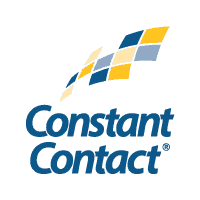We may earn a commission if you click on a product link and make a purchase at no additional cost to you. For more information, please see our disclosure policy.
Last Updated on March 27, 2024
When embarking on a new career journey, whether as a newcomer or someone contemplating a change after years in a different field, you are met with two primary paths: pursuing employment under someone else or launching your own business. Each route comes with its unique set of advantages and challenges, and it is crucial not to rush into a decision without thoroughly understanding which path aligns best with your current and future aspirations.
One effective strategy for those grappling with this decision is to meticulously evaluate the positives and negatives associated with each option. By doing so, you can gain clarity on which avenue resonates more deeply with your personal goals and preferences, thereby facilitating a more informed choice. This approach not only minimizes wasted time and boosts confidence but also enables you to establish clear objectives to strive toward.
With this perspective, we invite you to delve deeper into the nuances of each choice, empowering you to begin your decision-making process with confidence.
The Pros Of Getting A Job
Let’s begin by exploring the benefits of seeking employment and working for someone else, a path often considered the initial option for many. Understanding these advantages provides valuable insight into what you can anticipate from having a boss, as opposed to being your own boss.
Facing a career crossroads? Deciding between the stability of employment and the adventure of entrepreneurship is no small feat. Dive into the pros and cons of each path and find clarity for your future. #CareerChoice #FutureGoals #MakeYourMoveClick To TweetSteady Income
One of the most significant advantages of opting for employment over self-employment is the security of a consistent income. Regardless of the specific
Financial Security
The financial security mentioned previously extends beyond just a steady paycheck. In many employment settings, you’ll benefit from additional perks such as health
These benefits significantly enhance your financial stability, ensuring you’re compensated even during times you’re not working. However, the availability of these advantages can vary based on your employment contract and workplace. It’s crucial to thoroughly review these details before applying for, or accepting, a job to confirm the extent of the financial security offered.
Lower Risk
Being employed typically entails significantly lower risks in various aspects compared to starting your own business. Initially, securing a job shouldn’t incur any costs, aside from commuting
Professional Development
Many businesses provide their employees with diverse opportunities for learning and skill enhancement. Employers frequently
Work-Life Balance
When employed by someone else, you’re typically assigned specific working hours, though there may be options for overtime should you choose to pursue them. This structure allows you to disengage from work responsibilities once your day ends, presenting an ideal chance to cultivate an excellent work-life balance. The ability to separate professional commitments from personal time is a key advantage, enabling you to relax, recharge, and pursue hobbies or spend quality time with family and friends outside of work hours. This clear demarcation between work and leisure contributes significantly to overall well-being and job satisfaction.
The Cons Of Getting A Job
Next, we will explore the drawbacks of being employed, ensuring you have a comprehensive understanding of every facet of this career choice. This balanced perspective aims to equip you with all the necessary information, shedding light on potential challenges and limitations that come with working for someone else. By examining both the advantages and disadvantages, you can make an informed decision that aligns with your personal and professional goals.
Limited Income Potential
While a job provides the benefit of a stable income, it also often imposes limitations on your earning potential.
Limited Control
Working for someone else means adhering to their directives, resulting in restricted autonomy over your daily tasks and the methods you employ to execute them. This can lead to frustration, particularly if you’re convinced there’s a more efficient way to accomplish a task but find your suggestions fall on deaf ears.
Moreover, this dynamic can extend to your career trajectory as a whole. Despite your efforts and dedication, the advancement and direction of your career ultimately rest in your employer’s hands. This can be limiting, as it places a ceiling on how far you can progress and what opportunities might be available to you, regardless of your contributions and hard work.
Less Freedom
Employment can be demanding, with fixed hours and, often, a specified work location. This structure can restrict your freedom and potentially disrupt your work-life balance. While the extent of this impact varies by job and the specific hours required, it’s an important consideration. Not every position will impose significant limitations on personal time, but the possibility is notable and merits careful thought, especially for those valuing flexibility and balance between their professional and personal lives.
Job Insecurity
No job is completely secure, regardless of the size of the company you work for. Employment under someone else carries the risk of job loss due to a variety of unforeseen circumstances, such as economic recessions, business downsizing, reduced sales, shifts in industry trends, and more. These factors can abruptly alter your employment status, highlighting the inherent uncertainties associated with working for others.
Pros Of Starting A Business
Turning our attention to the flip side, let’s explore the benefits of embarking on the entrepreneurial journey.
Unlimited Earning Potential
Running your own business offers you the best way to get unlimited income – it’s down to you to make your business as successful as possible, but there’s no cap on your earnings, and the sky really is the limit when you are the boss and you’re in control.
Control
Speaking of control, this is another reason that starting your own business can be a good idea. When you’re a business owner, you’ll be able to make all the decisions, meaning you can choose the ideal products, services, and software, such as electrical contractor software, to use. You can take your business in the direction you want it to go in, and not have to answer to anyone.
Build A Legacy
Another reason why people love to run their own businesses is that they can create a legacy for the future. When you’ve got a successful business, you can be sure that you’ll leave something behind you when you go, perhaps even having family members take over the business on your behalf. This kind of legacy is something to be proud of, and it’s an excellent reason to start a business.
Cons Of Starting A Business
It’s equally important to consider the potential downsides to ensure a well-rounded understanding.
Financial Risk
Starting a business will usually involve some kind of financial risk because you’ll have to
Uncertainty
Launching a business is a viable option, yet it comes with inherent uncertainties. The unpredictability of income—both in terms of timing and amount—can make managing personal finances a challenge. Additionally, there’s the lingering question of whether the venture will succeed, adding another layer of uncertainty to the entrepreneurial experience.
Workload
If you’re a business owner, it’s very unlikely you’ll be able to shut off entirely; you’ll always have work on your mind, and the hours are likely to be long ones, especially at the start. This workload can be overwhelming, and you might even run the risk of burnout. At the very least, your work-life balance is going to be negatively affected in the short term and potentially for a long time to come.
Final Words
Deciding between employment and entrepreneurship is a significant crossroads with no one-size-fits-all answer. Each path offers distinct advantages and challenges, tailored to different personalities, goals, and life situations. Ultimately, the choice hinges on your tolerance for risk, desire for autonomy, and long-term career aspirations. Reflecting on these aspects will guide you toward a decision that aligns with your personal and professional fulfillment.
-
 Get your Office supplies and more
Get your Office supplies and moreOffice Supplies. Art & Crafting, Bags & Luggage, Basic Supplies, Binders & Accessories, Business Forms, Tax Forms & Recordkeeping, Calendars & Planners and more
We earn a commission if you click this link and make a purchase at no additional cost to you.
-
 $9.99Buy on Amazon.com
$9.99Buy on Amazon.comIn this book, you will discover:
- The top digital business trends to watch – these will completely change the world of online marketing within the next decade
- A simple method for finding profitable niche markets for free
- The most effective pricing strategies for online businesses
We earn a commission if you click this link and make a purchase at no additional cost to you.
07/15/2025 10:03 am GMT -
See If You Qualify
The Smart Way to Fund Your Business
- Find your best loan offer from competing lenders
- Loans up to $5M.
- Checking rates won't affect your credit score.
We earn a commission if you click this link and make a purchase at no additional cost to you.
-
Compare Options
Discover the Power of Knowing What’s in Your Business Credit Profile.
D&B Credit Insights is for any small business owner who wants to know their business’s credit like the back of their hand. See real-time alerts when there are changes to your business scores and ratings, so you can quickly spot potential issues and act fast.
We earn a commission if you click this link and make a purchase at no additional cost to you.
-
 $14.99Learn More at Amazon.com
$14.99Learn More at Amazon.comThe book Supercharge Your Business with Technology takes you on a journey of understanding of the true benefits of viewing technology as a strategic asset of your business
We earn a commission if you click this link and make a purchase at no additional cost to you.
07/15/2025 10:05 am GMT -
 $11.99Learn More on Amazon.com
$11.99Learn More on Amazon.comUnleash your potential with this companion that goes beyond ordinary notebooks. The Brainstorming Journal and Workbook is not just basic pages bound together.
We earn a commission if you click this link and make a purchase at no additional cost to you.
07/15/2025 10:03 am GMT -
 Get started for free
Get started for freeAdd to your bottom line, not your to-do list.
Email, social media, and more to help your business get the attention it deserves.
We earn a commission if you click this link and make a purchase at no additional cost to you.
-
Start my business
Time to be your own boss
Join the millions who launched their businesses with LegalZoom.
LLC plans start at $0 + filing fees.
We earn a commission if you click this link and make a purchase at no additional cost to you.
Related posts:
Mark Fiebert is a former finance executive who hired and managed dozens of professionals during his 30-plus-year career. He now shares expert job search, resume, and career advice on CareerAlley.com.




